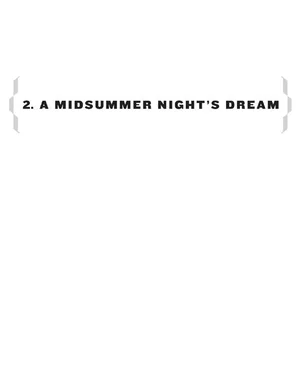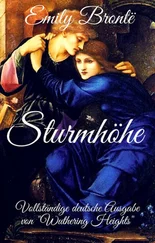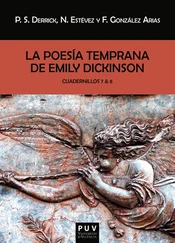Emily Mandel - Station Eleven
Здесь есть возможность читать онлайн «Emily Mandel - Station Eleven» весь текст электронной книги совершенно бесплатно (целиком полную версию без сокращений). В некоторых случаях можно слушать аудио, скачать через торрент в формате fb2 и присутствует краткое содержание. Год выпуска: 2014, ISBN: 2014, Издательство: Knopf, Жанр: Старинная литература, на английском языке. Описание произведения, (предисловие) а так же отзывы посетителей доступны на портале библиотеки ЛибКат.
- Название:Station Eleven
- Автор:
- Издательство:Knopf
- Жанр:
- Год:2014
- ISBN:9780385353311
- Рейтинг книги:4 / 5. Голосов: 1
-
Избранное:Добавить в избранное
- Отзывы:
-
Ваша оценка:
- 80
- 1
- 2
- 3
- 4
- 5
Station Eleven: краткое содержание, описание и аннотация
Предлагаем к чтению аннотацию, описание, краткое содержание или предисловие (зависит от того, что написал сам автор книги «Station Eleven»). Если вы не нашли необходимую информацию о книге — напишите в комментариях, мы постараемся отыскать её.
Station Eleven — читать онлайн бесплатно полную книгу (весь текст) целиком
Ниже представлен текст книги, разбитый по страницам. Система сохранения места последней прочитанной страницы, позволяет с удобством читать онлайн бесплатно книгу «Station Eleven», без необходимости каждый раз заново искать на чём Вы остановились. Поставьте закладку, и сможете в любой момент перейти на страницу, на которой закончили чтение.
Интервал:
Закладка:
Also by Emily St. John Mandel
Last Night in Montreal
The Singer’s Gun
The Lola Quartet

THIS IS A BORZOI BOOK
PUBLISHED BY ALFRED A. KNOPF
Copyright © 2014 by Emily St. John Mandel
All rights reserved. Published in the United States by Alfred A. Knopf, a division of Random House LLC, New York, a Penguin Random House company.
www.aaknopf.com
Knopf, Borzoi Books, and the colophon are registered trademarks of Random House LLC.
Library of Congress Cataloging-in-Publication Data
St. John Mandel, Emily, 1979–
Station eleven : a novel / Emily St. John Mandel. —First edition.
pages cm
ISBN 978-0-385-35330-4 (hardback)
ISBN 978-0-385-35331-1 (eBook)
1. Actors—Fiction. 2. Time travel—Fiction. I. Title.
PR9199.4.S727S83 2014 813’.6—dc23 2014003560
This is a work of fiction. Names, characters, places, and incidents either are the product of the author’s imagination or are used fictitiously. Any resemblance to actual persons, living or dead, events, or locales is entirely coincidental .
Front-of-jacket photograph by Michael Turek/Gallery Stock
Jacket design by Abby Weintraub
v3.1
IN MEMORY OF EMILIE JACOBSON
The bright side of the planet moves toward darkness
And the cities are falling asleep, each in its hour,
And for me, now as then, it is too much.
There is too much world.
—Czeslaw Milosz
The Separate Notebooks
Contents
Cover
Other Books by This Author
Title Page
Copyright
Dedication
Epigraph
1. The Theater
Chapter 1
Chapter 2
Chapter 3
Chapter 4
Chapter 5
Chapter 6
2. A Midsummer Night’s Dream
Chapter 7
Chapter 8
Chapter 9
Chapter 10
Chapter 11
Chapter 12
3. I Prefer You With a Crown
Chapter 13
Chapter 14
Chapter 15
Chapter 16
Chapter 17
Chapter 18
4. The Starship
Chapter 19
Chapter 20
Chapter 21
Chapter 22
Chapter 23
Chapter 24
Chapter 25
Chapter 26
5. Toronto
Chapter 27
Chapter 28
Chapter 29
Chapter 30
Chapter 31
Chapter 32
Chapter 33
Chapter 34
Chapter 35
Chapter 36
Chapter 37
6. The Airplanes
Chapter 38
Chapter 39
Chapter 40
Chapter 41
7. The Terminal
Chapter 42
Chapter 43
Chapter 44
Chapter 45
Chapter 46
Chapter 47
8. The Prophet
Chapter 48
Chapter 49
Chapter 50
Chapter 51
Chapter 52
9. Station Eleven
Chapter 53
Chapter 54
Chapter 55
Acknowledgments
A Note About the Author

1
THE KING STOODin a pool of blue light, unmoored. This was act 4 of King Lear , a winter night at the Elgin Theatre in Toronto. Earlier in the evening, three little girls had played a clapping game onstage as the audience entered, childhood versions of Lear’s daughters, and now they’d returned as hallucinations in the mad scene. The king stumbled and reached for them as they flitted here and there in the shadows. His name was Arthur Leander. He was fifty-one years old and there were flowers in his hair.
“Dost thou know me?” the actor playing Gloucester asked.
“I remember thine eyes well enough,” Arthur said, distracted by the child version of Cordelia, and this was when it happened. There was a change in his face, he stumbled, he reached for a column but misjudged the distance and struck it hard with the side of his hand.
“Down from the waist they are Centaurs,” he said, and not only was this the wrong line but the delivery was wheezy, his voice barely audible. He cradled his hand to his chest like a broken bird. The actor portraying Edgar was watching him closely. It was still possible at that moment that Arthur was acting, but in the first row of the orchestra section a man was rising from his seat. He’d been training to be a paramedic. The man’s girlfriend tugged at his sleeve, hissed, “Jeevan! What are you doing ?” And Jeevan himself wasn’t sure at first, the rows behind him murmuring for him to sit. An usher was moving toward him. Snow began to fall over the stage.
“The wren goes to’t,” Arthur whispered, and Jeevan, who knew the play very well, realized that the actor had skipped back twelve lines. “The wren …”
“Sir,” the usher said, “would you please …”
But Arthur Leander was running out of time. He swayed, his eyes unfocused, and it was obvious to Jeevan that he wasn’t Lear anymore. Jeevan pushed the usher aside and made a dash for the steps leading up to the stage, but a second usher was jogging down the aisle, which forced Jeevan to throw himself at the stage without the benefit of stairs. It was higher than he’d thought and he had to kick the first usher, who’d grasped hold of his sleeve. The snow was plastic, Jeevan noted peripherally, little bits of translucent plastic, clinging to his jacket and brushing against his skin. Edgar and Gloucester were distracted by the commotion, neither of them looking at Arthur, who was leaning on a plywood column, staring vacantly. There were shouts from backstage, two shadows approaching quickly, but Jeevan had reached Arthur by now and he caught the actor as he lost consciousness, eased him gently to the floor. The snow was falling fast around them, shimmering in blue-white light. Arthur wasn’t breathing. The two shadows—security men—had stopped a few paces away, presumably catching on by now that Jeevan wasn’t a deranged fan. The audience was a clamor of voices, flashes from cell-phone cameras, indistinct exclamations in the dark.
“Jesus Christ,” Edgar said. “Oh Jesus.” He’d dropped the British accent he’d been using earlier and now sounded as if he were from Alabama, which in fact he was. Gloucester had pulled away the gauze bandage that had covered half his face—by this point in the play his character’s eyes had been put out—and seemed frozen in place, his mouth opening and closing like a fish.
Arthur’s heart wasn’t beating. Jeevan began CPR. Someone shouted an order and the curtain dropped, a whoosh of fabric and shadow that removed the audience from the equation and reduced the brilliance of the stage by half. The plastic snow was still falling. The security men had receded. The lights changed, the blues and whites of the snowstorm replaced by a fluorescent glare that seemed yellow by comparison. Jeevan worked silently in the margarine light, glancing sometimes at Arthur’s face. Please, he thought, please. Arthur’s eyes were closed. There was movement in the curtain, someone batting at the fabric and fumbling for an opening from the other side, and then an older man in a gray suit was kneeling on the other side of Arthur’s chest.
“I’m a cardiologist,” he said. “Walter Jacobi.” His eyes were magnified by his glasses, and his hair had gone wispy on the top of his head.
“Jeevan Chaudhary,” Jeevan said. He wasn’t sure how long he’d been here. People were moving around him, but everyone seemed distant and indistinct except Arthur, and now this other man who’d joined them. It was like being in the eye of a storm, Jeevan thought, he and Walter and Arthur here together in the calm. Walter touched the actor’s forehead once, gently, like a parent soothing a fevered child.
Читать дальшеИнтервал:
Закладка:
Похожие книги на «Station Eleven»
Представляем Вашему вниманию похожие книги на «Station Eleven» списком для выбора. Мы отобрали схожую по названию и смыслу литературу в надежде предоставить читателям больше вариантов отыскать новые, интересные, ещё непрочитанные произведения.
Обсуждение, отзывы о книге «Station Eleven» и просто собственные мнения читателей. Оставьте ваши комментарии, напишите, что Вы думаете о произведении, его смысле или главных героях. Укажите что конкретно понравилось, а что нет, и почему Вы так считаете.












